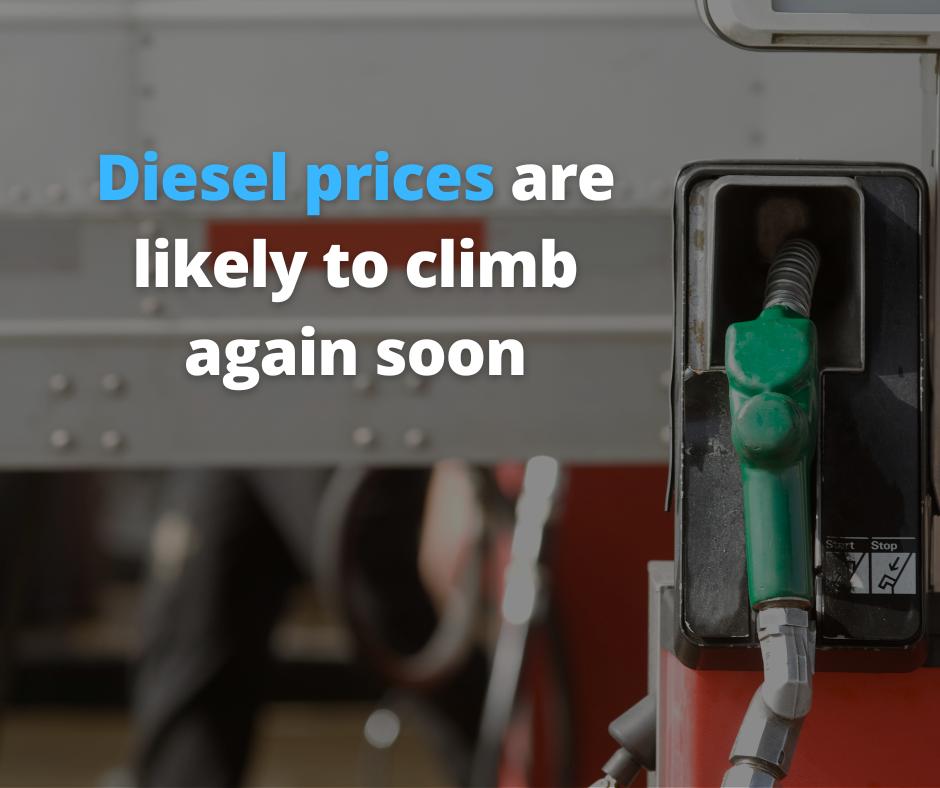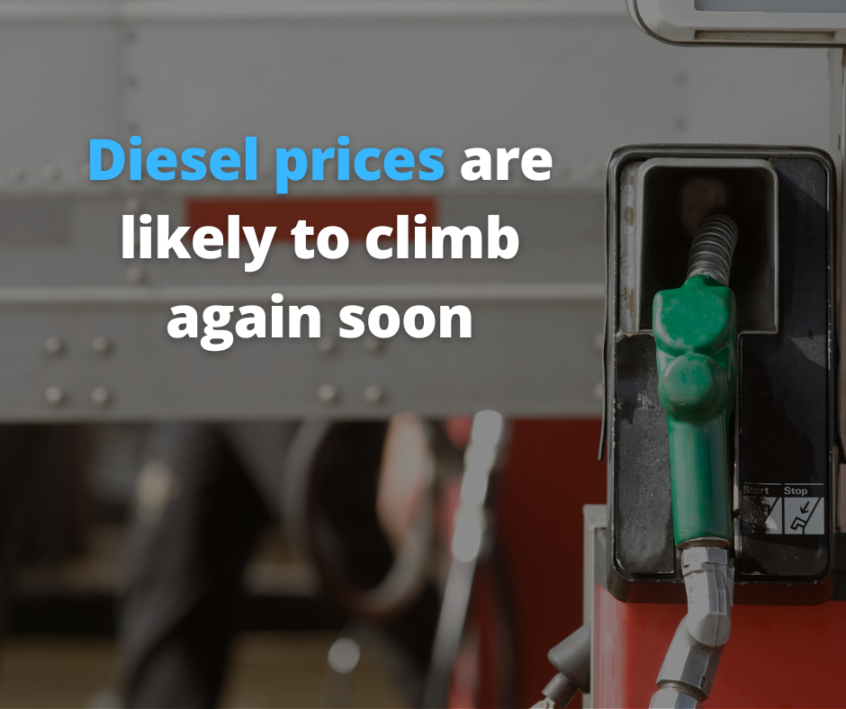
Cost and viability implications for the logistics industry
There are indicators that the diesel price crisis is ongoing. Such indicators belie the expectations that the economy is slowing down. Instead, demand for diesel is increasing. Some countries are already grappling with a diesel shortage. For example, many European countries are rushing to secure diesel deals because of the embargo placed on Russian barrels. As the harvest season comes to the US in the Midwest, demand for diesel is bound to rise even further. It may be that the suppliers must play a balancing act between meeting a domestic need and catering to international demand.
Diesel as an essential fuel of economic activity
John Kemp of Reuters has indicated in his oil-buying periodical that institutional traders and hedge funds are buying diesel contracts at some of the fastest rates since November 2020. In real terms, this means 9 million barrels are added to holdings. Bloomberg indicated that the demand for US diesel hit the highest level in the last half-decade. The winter is likely to bring even more demand. Indeed, the US exports of diesel reached an all-time high just last month. The biggest destinations of these exports are Europe and South America.
Other countries are putting protective mechanisms to ensure their supply of diesel. For example, India has placed exportation limits on diesel based on concerns about the adequacy of domestic supplies. Additionally, diesel from Russia has been shunned by mainstream Europe due to the existing sanctions regime that emanated from the invasion of Ukraine. That embargo will not likely end before the current year’s close. Even though there have been diesel shortages before, this one is gathering much publicity.
Government action to mitigate the risks of diesel shortages
An European Petroleum Refiners Association executive indicated at the beginning of the year that most governments were aware of the link between GDP performance and access to diesel. This was in response to the sanctions against Russia when some skeptics were worried about unintended consequences such as the current scarcity of diesel. This is no idle speculation since Russia remains the largest supplier of diesel to the European Union. It is estimated that Europe imports an average of 750,000 barrels every day from Russia, a matter of necessity given the freight transportation, heavy industry, and economic impetus.
Setting the sanction aside for the moment, the diesel market has generally experienced a much faster demand rebound than supply growth following the Covid-19 pandemic. That pattern was reflected in the market for crude oil. Some experts have noted that the demand growth has slowed down recently on the back of an expectation of a global downturn. This would make sense given the central bank rate increments and inflationary pressures discouraging buyers. However, that pattern only lasted for a relatively brief period to be replaced by an even greater demand for diesel.
An inventory that is lacking in reliability and completeness
A columnist for Reuters has noted that US crude oil inventories were failing to fully recover, despite the fuel price inflation. The implication is that the tightness of the fuel markets and the consequent price elevations will likely continue for the rest of the year. The Department of Energy in the USA reported this was that US oil inventories had fallen to their lowest levels since 1985. Indeed, the strategic petroleum reserve now stands at only 469.9 million barrels. As a result, the problems and worries are spreading to the rest of the world.
Some African countries, for example, have reported such shortages in fuel and drivers, impacting the supply chain in a myriad of ways. The Central African Republic is a case in point. Here, humanitarian organizations that have been active in the country recently have scaled back their engagement. A shortage of diesel has been partly blamed for this withdrawal. Cameroon is another case that has had to deal with street protests over dwindling fuel supplies and the inevitable soaring prices.
The crises have a high potential for contagion across the globe
Brazil is another country beginning to feel the pressure of diesel shortages. Petrobras, the state-owned oil company, has warned of shortages unless the company was allowed to sell its fuels at market prices rather than subsidized rates that encourage consumption. If the traditional suppliers cannot meet the demand and there is a continued squeeze on Russian supplies, it makes for a potentially critical situation. The geopolitical context is unsuitable for turning to Russia and its associates as relief measures. Europe is also wary of its continued energy reliance on Russia, which has hampered its anti-Russia strategy in the wake of the invasion of Ukraine.
Meanwhile, the major consumers of diesel are demanding its steady supply despite the challenges in the market today. The economic recovery in the post-Covid 19 era is bound to be problematic due to the increasing demand for diesel beyond the expectations of a downturn. Economies require diesel to run, and the supply is not doing the trick. The expectations of a relief phase when sanctions against Russia are eased are not likely to come until 2023. This makes a grim reading for those in the logistics and transportation business and ordinary consumers that rely heavily on diesel.
Wrapping up
A combination of a supply squeeze and demand expansion means that diesel is in short supply. Even more worrying is the reality that the current state of the market is not likely to ease until next year. Russia is embargoed by much of Russia, and the USA must think about its domestic needs when harvests begin in the Midwest. In addition, some South American countries are rethinking their price controls on diesel and other fuels to stem demand. Meanwhile, African countries are facing civil strife and significant logistical problems due to the shortage of this essential fuel. The post-Covid 19 era is bringing new economic and political challenges that will require strong policy interventions in the medium and long run.



